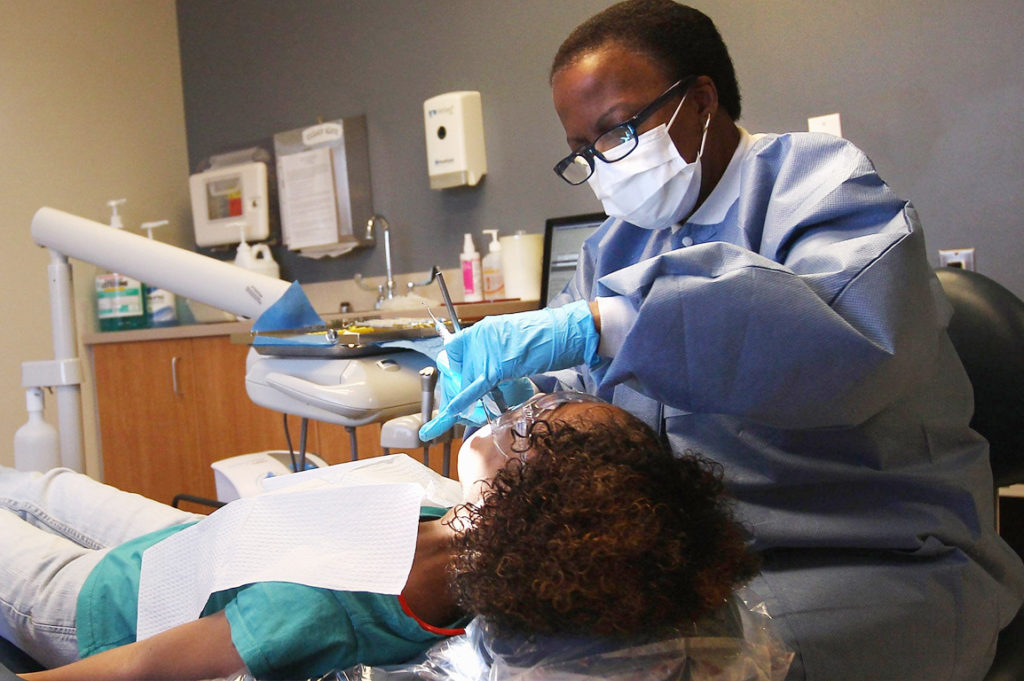Can Small Cavities Heal Themselves?

A cavity is a hole in the tooth caused by tooth decay. If cavities are left untreated, more serious issues may arise. Maintaining your dental health and establishing good habits at home are essential.
By going for regular examinations and cleanings in the best dental clinics in Leduc, you may find out if you have any cavities, and your dentist will make sure you receive treatment right away. You might be assuming that your cavity will go away on its own if you have one and are reluctant to see a dentist in Leduc, Alberta.
Do small cavities require treatment?
You will likely require a filling if you have a significant cavity. If your cavity is minor and is not causing any pain, it could be possible for the dentist to watch the cavity by analyzing X-rays in order to make sure if it is active or arrested. With proper oral hygiene, small cavities that are detected early on can be minimized. Monitoring your dental health by flossing, brushing, and using fluoride can assist in fortifying the enamel and halting the progression of a cavity.
To find out if cavities can heal themselves, you need to know how dental decay develops. There are different phases of deterioration. Demineralization is the name assigned to the beginning stage. This happens when oral bacteria eat away at the enamel on your teeth, harming the tooth’s overall strength. A cavity will eventually develop as a result of the enamel’s deterioration. Next, decaying enamel within the tooth can lead to dentin erosion and pulp injury. Finally, an abscess can occur if the bacteria is not treated.
You can reverse tooth decay on your own with proper dental hygiene if it is yet in the demineralization stage. Sometimes, even tiny cavities may heal themselves. But this is only possible in the early phases of deterioration. The rapid growth of dental decay can be stopped by using fluoride treatments, brushing, and flossing correctly.
How can you avoid cavities?
The most effective way to preserve optimal oral health and avoid cavities is to follow a thorough preventive strategy, which includes the following:
- Maintaining good dental hygiene
Maintaining good oral hygiene can help lower your risk of cavities by removing plaque and bacteria from your teeth with twice-day brushings, daily flossing, and fluoride-containing toothpaste.
- Using a fluoride toothpaste
It has been scientifically proven that fluoride, a naturally occurring mineral, can both reduce the amount of acid in your mouth and strengthen and regenerate tooth enamel. Fluoride is a common component in toothpaste and other oral hygiene products. To help the fluoride work its spell, make sure you brush after flossing and avoid rinsing your mouth.
- Include healthy foods in your diet.
Reducing the amount of sweet and acidic foods and drinks you consume may help protect your teeth from harmful acids and lower your risk of tooth decay.
- Go for regular dental checkups.
Making an appointment with your dentist on a regular basis is essential for preventative care. In addition to using preventive treatments like fluoride varnish or dental sealants that protect vulnerable teeth, your dentist can identify early signs of decay and give an expert cleaning to remove hardened plaque (tartar).
How can you treat cavities?
Once a cavity forms and tooth decay has advanced beyond its first stages, you will need medical treatment. Dentists can use various treatment techniques to stop cavities from getting more serious, fix tooth structures, and prevent additional damage. These could consist of:
- Dental fillings: When a cavity is not deep enough into the tooth’s deeper layers, a dentist can extract the damaged area and use amalgam or composite resin to fill the cavity.
- Root canal: In cases where dental decay has infected and inflamed the tooth pulp (nerve), a root canal treatment may be required to remove the affected pulp, wash the root canal, and close it to stop further damage.
